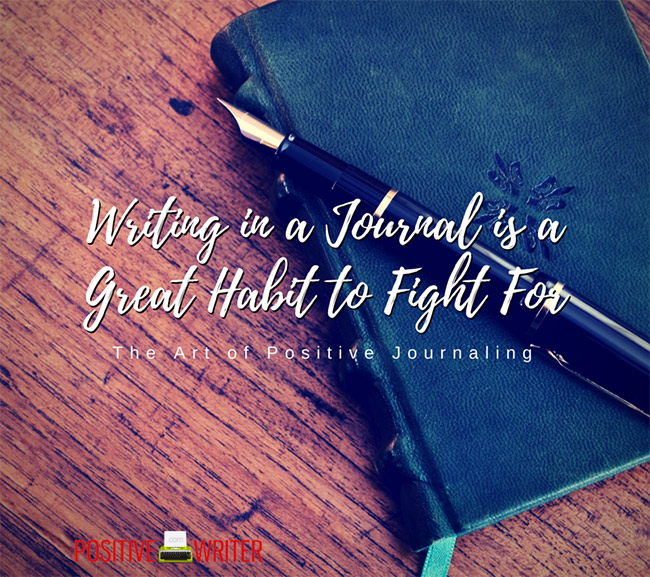It’s hard to make a writing habit and stick with it. Something can always get in the way. A better activity might come along. You might be too busy to commit. You could get bored.

Writing in a journal, though, is a great habit to fight for. Whether it’s every day or every week, a regular schedule is important. If you’re not convinced, here are three reasons why you should be:
-
You don’t have to censor yourself
Unless you’re an incredibly open person, a journal is one of those things that will never ever be read by anyone but you. You can do whatever you want, however you want.
A journal entry could be a paragraph or several pages. Spelling and grammar? Not important right now. Doodles? Sure, why not?
If you’re infuriated at someone, or excited about an upcoming event, or devastated at something that recently happened, you can rant or rave and let your emotions run wild on the page. Nobody can criticize or mock you. No one is going to read it.
This is a great exercise in trusting your own writing and letting the words spill out of you freely, which is exactly what you need to do with the first draft of any project.
-
You write about what’s most important to you
It’s probably not a conscious decision, but when you sit down to jot a few thoughts about the week you’ve had, you’re going to filter through the more meaningless memories (like what you had for breakfast on Tuesday) and focus on the big stuff.
What exactly is the “big stuff,” though? Usually, it’s whatever made you feel some strong emotion. Good or bad, it had a significant effect on you. When you immortalize those thoughts and feelings, it’s easier to draw on later.
Portraying a character’s emotion can be as simple as using your own experiences to convey that in an honest and believable way. Use those journal entries as a reference.
-
It gives you a habit to keep
Nobody’s perfect. Everybody will fudge a little on a promise they’ve made themselves. If you set out to write a journal entry every week but skip a couple times, that’s totally fine. The important thing is you gave yourself a goal, something relatively simple that will only impact you, and now you have to work at it to keep it.
With something like a journal, the stakes are pretty low, which means now is the time to practice and mess up and get discouraged. Once you’ve mastered journaling, you can take on more exciting (and intimidating) writing goals.
Journaling both improves your writing and your mental state
When you write about past events, you get to relive the happy memories and cement them more clearly in your mind.
You also get a great outlet for the less than pleasant memories and can sort out what really upset you and how to deal with it.
It’s a safe, private tool you can use for pretty much every occasion. Who wouldn’t want that?
Do you journal? Why or why not? How has it helped you and your writing?
I recommend giving Bryan’s *new positive journaling course a try. (Click here to go to it.)
